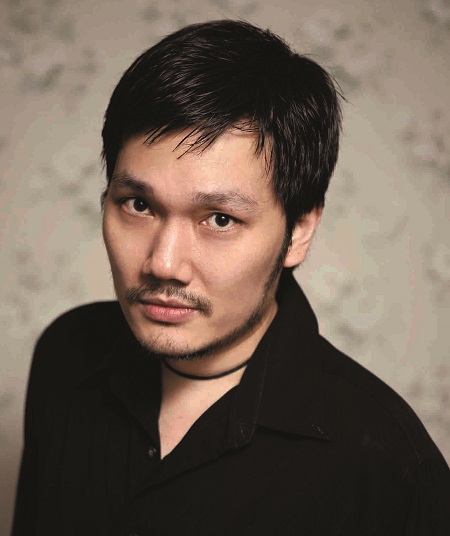
Back for his annual year-end production in Kuala Lumpur, Beijing-based director Deric Gan is staging the rarely seen (especially outside of China) Peking Man by Cao Yu. It is a treat for Malaysian audiences, considering that it is the second time a work by the lauded Chinese playwright has been staged in local theatres this year — the first being Joe Hasham’s English version of Thunderstorm a few months ago.
Coincidentally, response to the two plays was very different when they premiered in China, although both revolved around prominent families with a strong patriarchal figure who represented the wealthy Chinese old guard.
Peking Man, which is set in the 1930s, begins when the good old days are long gone, along with the money. Yet, the inhabitants of the house seem unable to move on, notably patriarch Zeng Hao, his “good-for-nothing” eldest son, a daughter-in-law who runs the household and a playboy son-in-law. The diverging character comes in the form of Zeng Hao’s niece, who yearns to break away.
According to Gan, although Peking Man was Cao’s favourite work and that which he felt most satisfied with when he wrote it in 1940, it failed to draw the crowds when the Beijing People’s Art Theater first staged it in 1957. A restaging in 1987 met a similar fate.
Cao himself joked that it was a play that “closes a theatre down”, perhaps because of its character-driven plot.
Gan says, “The story of Peking Man is very simple with few external happenings. What’s also unique about the play is that where a normal show’s climax is built up to a moment of energetic tension or frenzy, this play turns things on its head — the ‘explosion’ happens internally in a moment of quiet. It’s a real challenge to portray.”
This contributes to the reason why the play is rarely staged in or out of China. (In the country itself, Peking Man has only ever been staged by Beijingers). And when it is, directors and actors feel compelled to ensure that it replicates the style and form used in the first staging— a common approach when presenting Chinese classic works.
“Great works by the likes of Cao Yu have become classics on the nation’s theatre scene. It’s also why they have been staged exactly the same, be it in acting style, staging, costumes or props, even if the show first debuted in 1920. They are deeply rooted in the people’s psyche,” explains Gan.
But that is exactly why he is choosing to stage his first classic work by a Chinese author now despite having been based in Beijing for more than a decade, and to do it here in Malaysia. The award-winning director (pictured at left) also chose Peking Man because it is based on Anton Chekhov’s writings, of which he is a big fan.
“I didn’t really see the need to do classic works until now because in China, local directors would have a better understanding of handling them in the traditional style than I would. But this year is the 110th anniversary of ‘Huaju’ (spoken drama) in China. And when I thought about how Western literature — be it Shakespeare or (Henrik) Ibsen — remains relevant and timeless until today … it’s because they have been reinvented and reimagined in many different ways. And they are accepted by audiences. So, I also developed the desire to contemporise,” Gan remarks.

Like most of Cao’s works, the original play is lengthy, stretching to about five hours. But Gan has trimmed his production to two hours and reduced the number of characters from 15 to 9, which will be played by five actors taking on multiple roles.
He admits to home advantage, which gives him the freedom to experiment. “If Malaysian audiences can find Peking Man relevant when transplanted into today’s context, be it in costume or setting, then it proves that Chinese classics such as this have great potential to innovate,” Gan says.
He is not the first to try this, as well-known Chinese director Li Liuyi staged an avant-garde version of the play in 2006 in conjunction with the 100th anniversary of the playwright’s birthday. Nevertheless, it is an uphill battle. Gan recalls a production of Thunderstorm in Beijing two years ago, where one of the actors went on social media to criticise millennial members of the audience for laughing throughout the show. While it was disrespectful, Gan empathises with young audiences today, who perhaps cannot relate to the old style.
More importantly, he says it is not something he is doing for the sake of doing it. At the same time, he is not pulling things out of thin air. “When Cao Yu wrote this piece, he kept saying it was a comedy, just like Chekhov’s works. But somehow Chinese directors have always turned it into a tragedy. I feel it’s quite sad for a writer when people refuse to accept or regard your explanation or intention. So I’m going to use a comedic approach.”
It is a big gamble, the director acknowledges, but he and his brother, who is the producer, hope to invite Cao Yu’s daughter, Wan Fang, to watch the show here.
“I know her from Beijing. But I hope she will be willing to come to Malaysia to see it, and perhaps we can then bring it back to China. It’s about time … we can use the original traditional text and hold on to the core message but be bolder in bringing a sense of something new. I want to present a new possibility,” concludes Gan.
Peking Man by Muka Space will be staged from Dec 14 to 17 at Pentas 2, Kuala Lumpur Performing Arts Centre. Tickets are priced at RM88. The play will be performed in Mandarin. For more details, visit www.klpac.org or call (03) 4047 9000.


